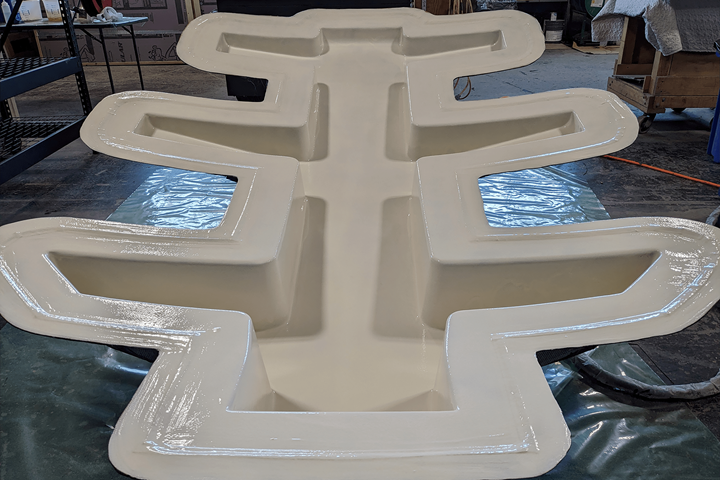Elastomer reusable vacuum bags address traditional material limitations
CAMX 2023: Sprayomer Technology Amor-Vac RVBs, distributed by Technology Marketing, are said to be more efficient, sustainable, long-living and lighter in weight compared to sprayable silicone or nylon film alternatives.
Distributor Technology Marketing Inc. (TMI, Salt Lake City, Utah, U.S.) supplies Sprayomer Technology Amor-Vac elastomer reusable vacuum bags (RVBs), bio-based elastomer materials that provide a variety of advantages compared to traditional sprayable silicone RVBs employed in composites manufacturing.
Sprayomer Technology Armor-Vac elastomer RVBs are suggested to work better than sprayable silicone RVBs and have an extended useful life beyond silicone when used with epoxy resins and prepreg systems. Moreover, when compared to silicone, this solution is said to be up to 80% lighter in weight, which could have positive effectives on process efficiency.
Elastomer RVBS can reportedly be manufactured in seamless near-net shape, tailored to a mold tool of any size. This enhances labor efficiency with rapid fitment and sealing of the bag while reducing the need for excess material and adjustments typically associated with conventional nylon-type tape down film bags. They are also a cleaner method of processing with fewer issues of concern related to cross-contamination and tracing in the manufacturing environment, and offer a lower carbon footprint than any other consumable film or reusable RVB, which can be an important consideration for environmentally conscious manufacturing practices.
TMI supports and excels technology and material with custom debulk table systems which accommodate flat stretchy elastomer bags and/or near-net shape bags on the same table system with quick and efficient processing. Debulk and or cure table systems can also be heated.
Related Content
-
The potential for thermoplastic composite nacelles
Collins Aerospace draws on global team, decades of experience to demonstrate large, curved AFP and welded structures for the next generation of aircraft.
-
Plant tour: Joby Aviation, Marina, Calif., U.S.
As the advanced air mobility market begins to take shape, market leader Joby Aviation works to industrialize composites manufacturing for its first-generation, composites-intensive, all-electric air taxi.
-
Large-format 3D printing enables toolless, rapid production for AUVs
Dive Technologies started by 3D printing prototypes of its composite autonomous underwater vehicles, but AM became the solution for customizable, toolless production.










.jpg;maxWidth=300;quality=90)



